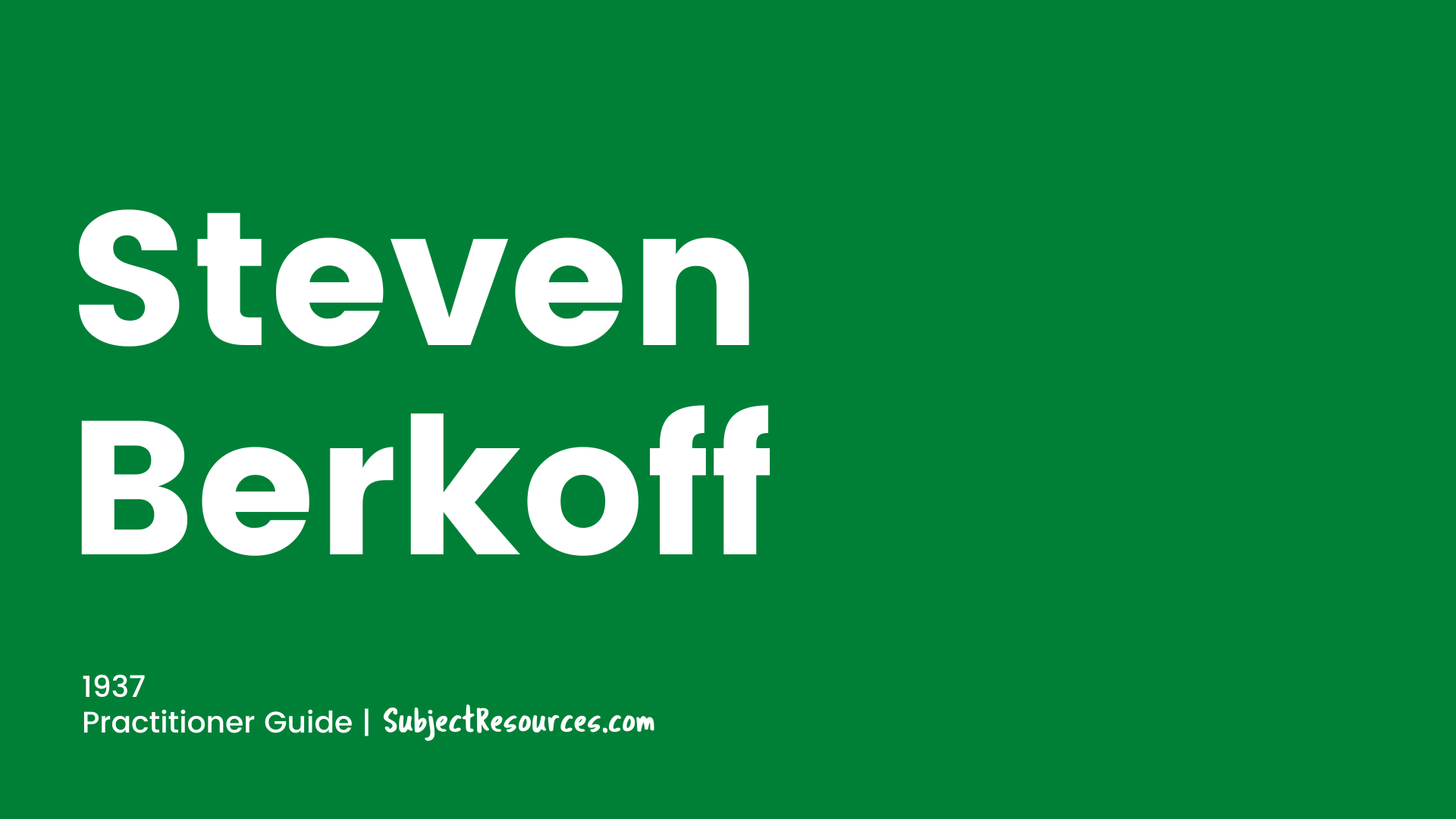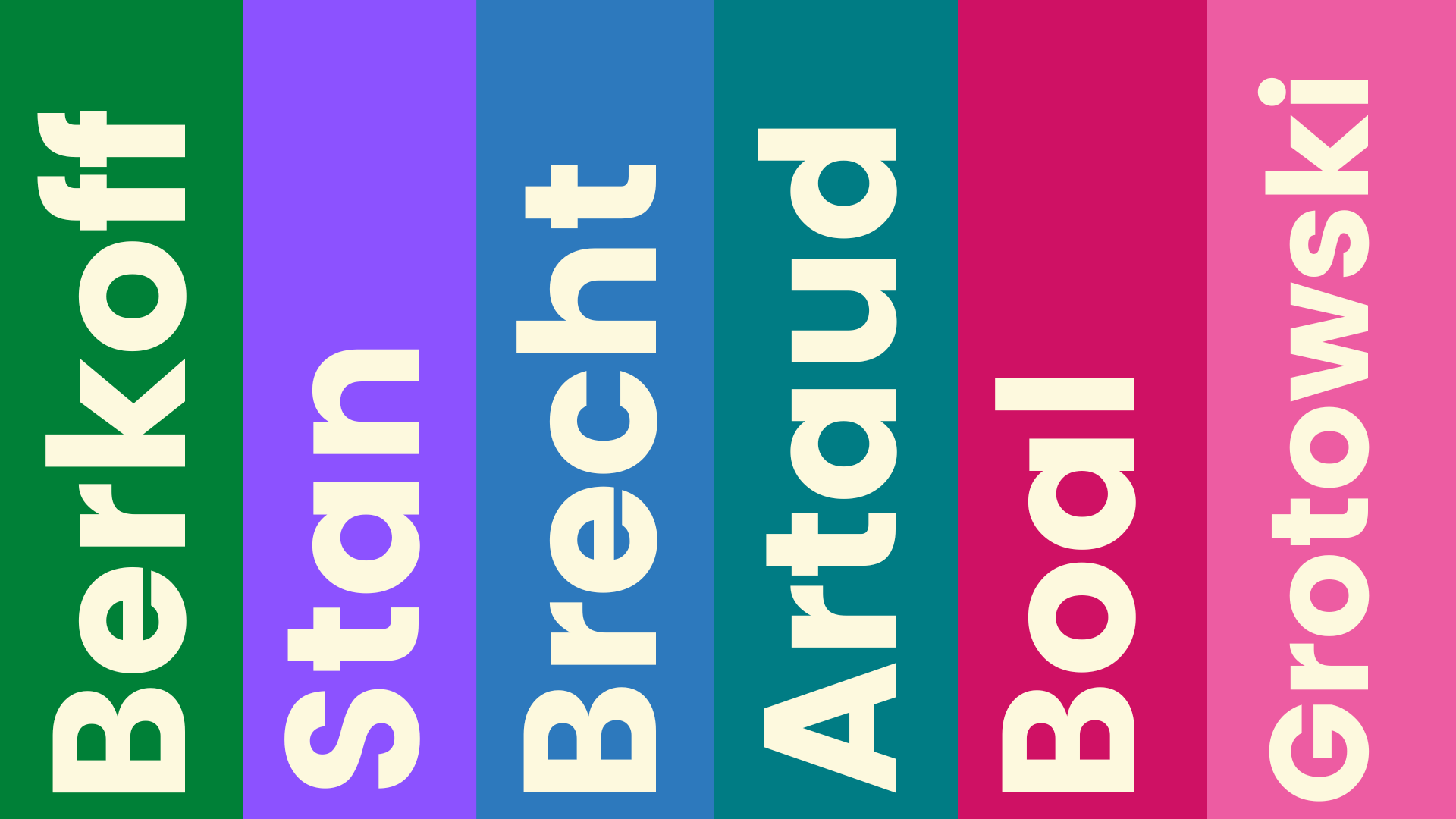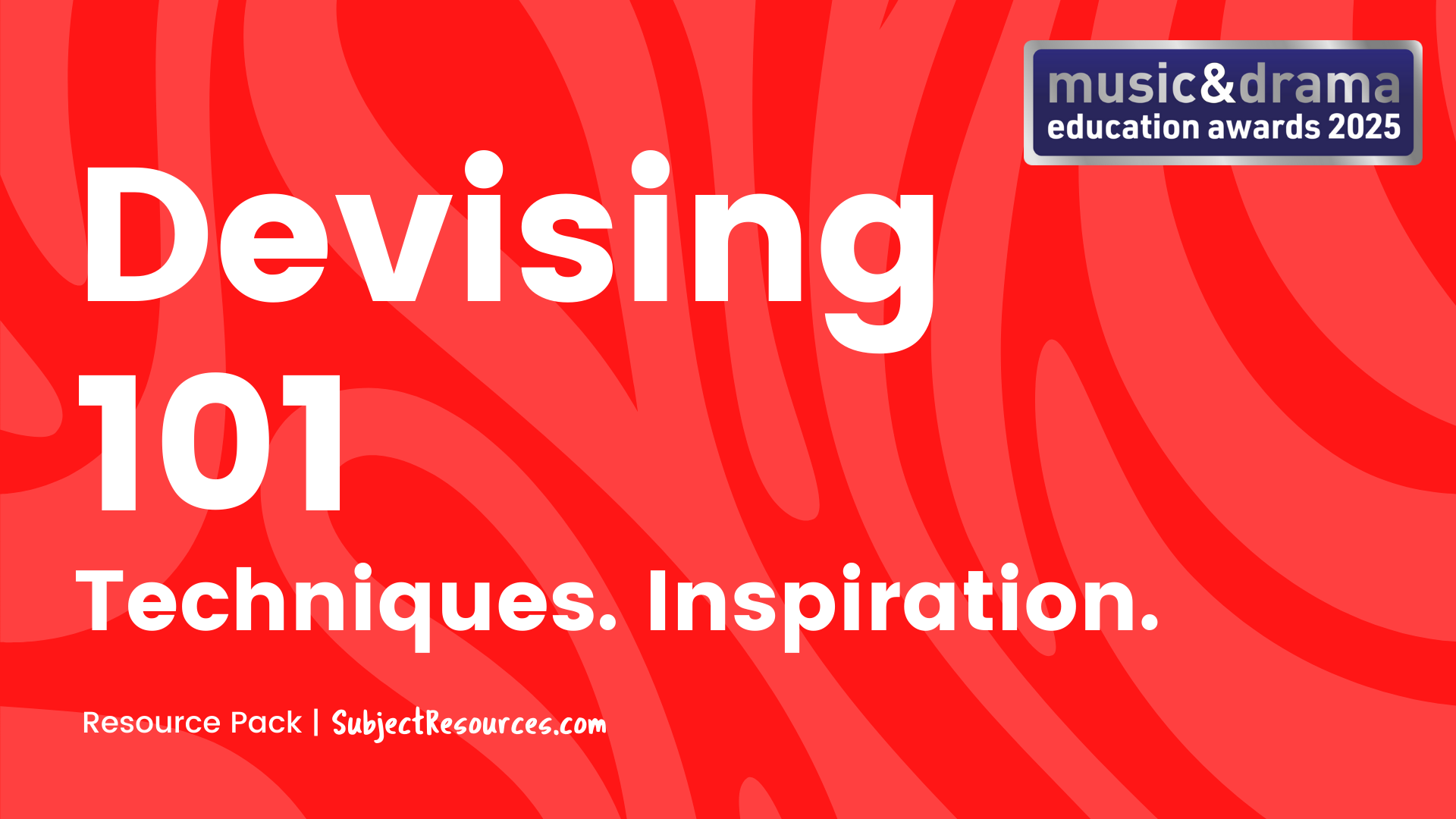Top 5 GCSE Drama Rehearsal Techniques
In this post, we look at our Top 5 Drama rehearsal techniques to help you with your Drama GCSE.
Hot Seating
The group questions a character about his or her background, behaviour and motivation. The method may be used to develop a role in the drama lesson or rehearsals or analyse a play post-performance. Even done without preparation, it is an excellent way of fleshing out a character. Characters may be hot-seated individually, in pairs or in small groups. The technique is useful for developing questioning skills with the rest of the group. Pair this exercise with spontaneous improvisation and create roleplay around key questions from your hot seating session.
Forum Theatre (Augusto Boal)
A technique pioneered by Brazilian radical Augusto Boal. A play or scene, usually indicating some oppression, is shown twice. During the replay, any audience member (spect-actors) is allowed to shout ‘Stop!’, step forward, and take the place of one of the oppressed characters, showing how they could change the situation to enable a different outcome. Different spect-actors may explore several alternatives. The other actors remain in character, improvising their responses. A facilitator (Joker) is necessary to enable communication between the players and the audience.
Essence Machine (Steven Berkoff)
Berkoff's style relies heavily upon the actor’s skills and mime, as well as the audience's ability to recognise and understand signs/symbols. This technique is best explored with an ensemble that collectively works together to establish an atmosphere, character or object. A great way to think of this is that each ensemble member is like a cog playing their own important part in the overall theatrical mechanism. The strategy breaks through the barrier between performers and the audience, putting them on an equal footing. It enables participants to try out courses of action which could apply to their everyday lives. Originally, Boal developed the technique as a political tool for change (part of the Theatre of the Oppressed), but it has been widely adapted for use in educational contexts.
Given Circumstances (Konstantin Stanislavski)
The given circumstances are the information about the character you start with and the play as a whole. How old is the character? What’s their situation in the play and their relation to the other characters? Are there any notes provided about the play and its characters? Such notes and stage directions may not tell you everything you need to build a character, but they are the starting point from which you will work to examine the other questions.
Levels of Exaggeration (Steven Berkoff)
Think of the character you are playing and select a specific body part or mannerism to be exaggerated. Explore walking around the space as your character. Start your exploration at level 1 and have someone call out each increase. Consider each level's incremental exaggeration in speed, weight, movement and tension. As you progress to level 10, you will likely have an incredibly stylised and exaggerated physical characterisation. Try to link together some lines of text to explore how the physicality can symbiotically link with the vocal delivery.
Download our theatre practitioner packs for loads more techniques and methodologies!
This practitioner pack explores the techniques and methodologies of Steven Berkoff. This pack intends to provide students with valuable and revision-friendly information to aid their practical work.
Areas covered: Total Theatre, Distortion, Rehearsal Process, Psychological Exploration, Satire, Verbal Rhythms, Levels of Exaggeration, Greek Theatre, Grotesque, Kvetch, Essence Machine, Mie, Burdens, Punch & Judy, Jo-Ha-Kyu, Mime, Mask, Biography, Key Quotes, Stylised Movement, Props, Practical Task & Principle Terms.
The pack is sent as a digital PDF document to your email after purchase. For A4 printed pack copies, please contact us via the contact page.
This pack explores the techniques, influences and methodology of influential theatre practitioner Bertolt Brecht.
Contents Include: Spass, Alienation, Gestus, Haltung, Stage Directions, Lehrstücke, Placards, Inductive Rehearsal, Narration, Direct Address, Montage, Music, The Silent Scream, Set Design, Split Role, Not-But, Multi-rolling, Historification, Lighting, Caspar Neher, Expressionism, Biography, Buchner, Marxism & The Everyman.
After purchase, the pack is sent to your email as a digital PDF document. For copies of the A4 printed pack, please contact us directly for a quote.
This pack provides a deeper look at the techniques and methodologies of Konstantin Stanislavski (1863-1938). This pack is perfect for independent student learning or can be used as a valuable resource whilst teaching.
Areas covered: Russian Theatre, The Young Stanislavski, The Dynamic Duo, The Moscow Art Theatre, The Seagull, The System, The America Tour, Anton Chekhov. Stanislavski Techniques: Three Core Elements, The First Acquaintance, Given Circumstances, Ask Questions, The Seven Planes, Relaxation, Subtext, Units & Objectives, Actioning, Method of Physical Actions, Emotion Memory, Sense Memory, Circles of Attention, Public Solitude, Tempo-Rhythm, The Fourth Wall, Magic If, Active Analysis, Faith & Sense of Truth, Before-time, Imagination, Endowment, Communication, The Unbroken Line, Key Quotes & Principle Terms Glossary.
The pack is sent as a digital PDF document to your email after purchase. Please request A4 printed pack copies via the contact form on the website.
Nominated for the ‘Outstanding Drama Education Resource’ Music & Drama Awards 2025!
This pack contains essential techniques, strategies and inspiration for students embarking on their Drama GCSE or A Level devising process. This guide is suited to GCSE and A Level students and supports their journey from stimuli to the final performance.
Contents Include: The Starting Point, Working with a Stimulus, Discussion & Planning, Research, Rehearsal Advice, Break the Ice, Aims & Objectives, Artistic Intentions, Style, Verbatim, Dislocated Dialogue, Creative Writing, Staging, Entrances & Exits, Newspaper Buffet, Image Theatre, The Elephant in the Room, Perspectives, Character Function, Engaging the Audience, Pace & Tension, Juxtaposition, Conscience Alley, Thought Tracking, Marking the Moment, Motif, Cross-cutting, Flashback, Narration, Role Play, Inspirational Quotes and 6-Week Devising Planner.
The pack is sent as a digital PDF document to your email after purchase. For A4 professionally printed copies, please email us via the contact page.





